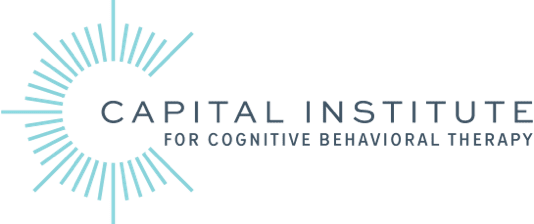Anxiety
Almost everyone feels anxious at times. However, people with anxiety disorders frequently have intense, persistent worry and fear about everyday situations. Often, anxiety disorders involve repeated episodes of sudden feelings of intense anxiety and fear that reach a peak within minutes.
Relationship Issues
Relationships are difficult. They can also be some of the most rewarding aspects of life. If you are feeling stuck in your relationship, or wanting improve the quality of your relationships, the Capital Institute can help.
Bipolar Disorder
Bipolar disorder is a mental health condition that causes extreme mood swings that include emotional highs and lows. At the Capital Institute, we are experienced in helping treat bipolar disorder, generally through a combination of medication and psychotherapy.
Depression
Depression is a mood disorder that causes a persistent feeling of sadness and loss of interest. It affects how you feel, think and behave and can lead to a variety of emotional and physical problems. At the Capital Institute, we help people recover from depression using research-proven techniques.
Obsessive Compulsive
People with obsessive–compulsive disorder (OCD) have obsessions, compulsions, or both. “Obsessions” are thoughts, mental pictures, or impulses that are upsetting but that keep coming back. “Compulsions” are actions that people feel they have to perform to keep from feeling anxious or to prevent something bad from happening.
PTSD
Post-traumatic stress disorder is a common reaction to very stressful or traumatic events. When people live through a trauma, the memories of what happened get connected in their minds with what they saw, heard, smelled, or felt at the time. Later a similar sight, sound, smell, or other feeling can bring the memories and emotions flooding back.
Integrative Therapy
For complex issues we offer integrative therapy that combines the proven practical techniques of CBT with the in-depth understanding of human personality and functioning provided by psychoanalytic, humanistic, and mindfulness-based approaches.
Disorders Treated
CBT has been proven to be an effective treatment for a number of mental health problems in clinical trials with real patients. The majority of patients in these studies have experienced measurable improvement in their symptoms.
Below is a list of some of the disorders CBT can help. Click the highlighted links for more information.
Please note: This material is provided for informational purposes. Only a qualified mental health professional can make a diagnosis and recommend a plan of treatment.
- Agoraphobia
- Anger
- Anorexia
- Anxiety
- Binge Eating
- Bipolar Disorder
- Body Dysmorphic Disorder
- Borderline Personality Disorder (BPD)
- Bulimia
- Chronic Pain
- Couples/Marital Issues
- Depression
- Eating Disorders
- Generalized Anxiety Disorder (GAD)
- Grief
- Health Anxiety
- Hoarding
- Insomnia
- Obsessive-Compulsive Disorder (OCD)
- Panic Disorder
- Personality Disorders
- Phobias
- Postpartum Depression and Anxiety
- Post-Traumatic Stress Disorder (PTSD)
- Procrastination
- Skin Picking (Excoriation)
- Social Anxiety
- Stress
- Test Anxiety
- Trichotillomania
Sometimes what is most troubling for people is not symptoms, but feeling dissatisfied with their life and unsure about how to make things better. We can work with you not just to make your symptoms better, but to help you to find greater fulfillment in your relationships, your work and other aspects of your life.
Request Your Consultation
Ready to get started? Have questions? Click below to contact our helpful New Patient Coordinator.
